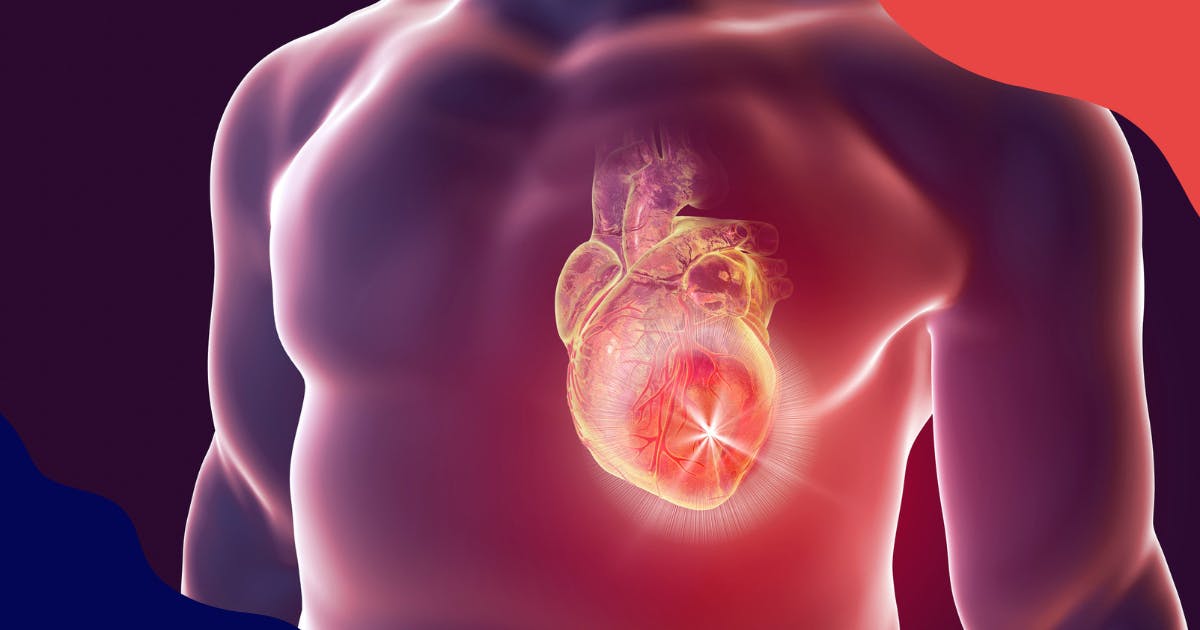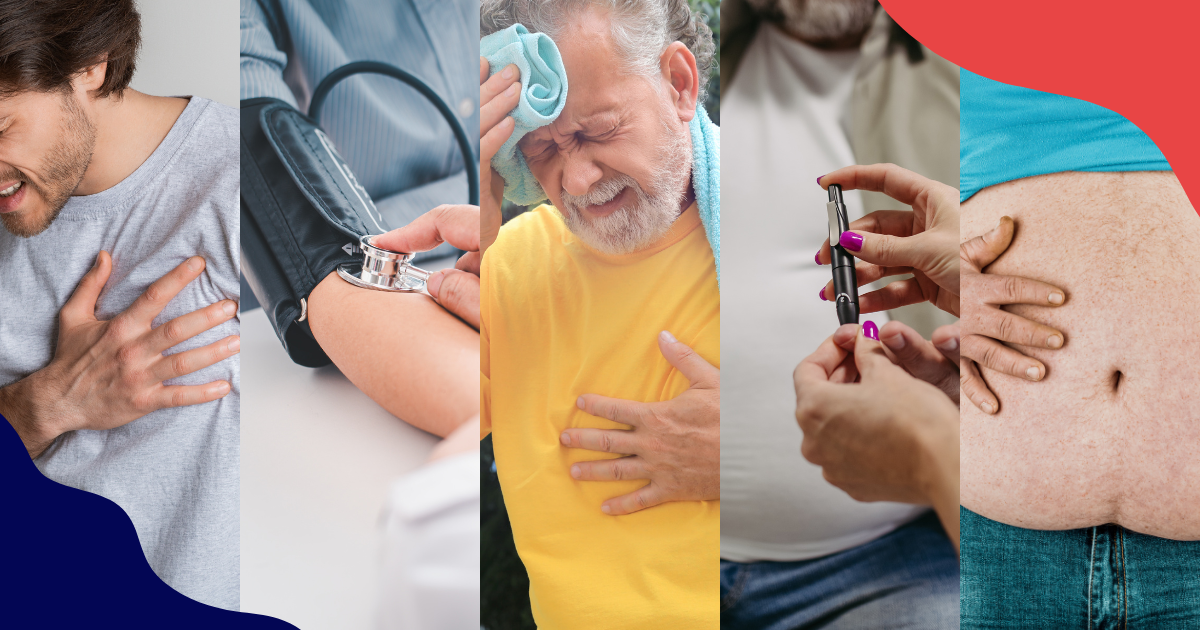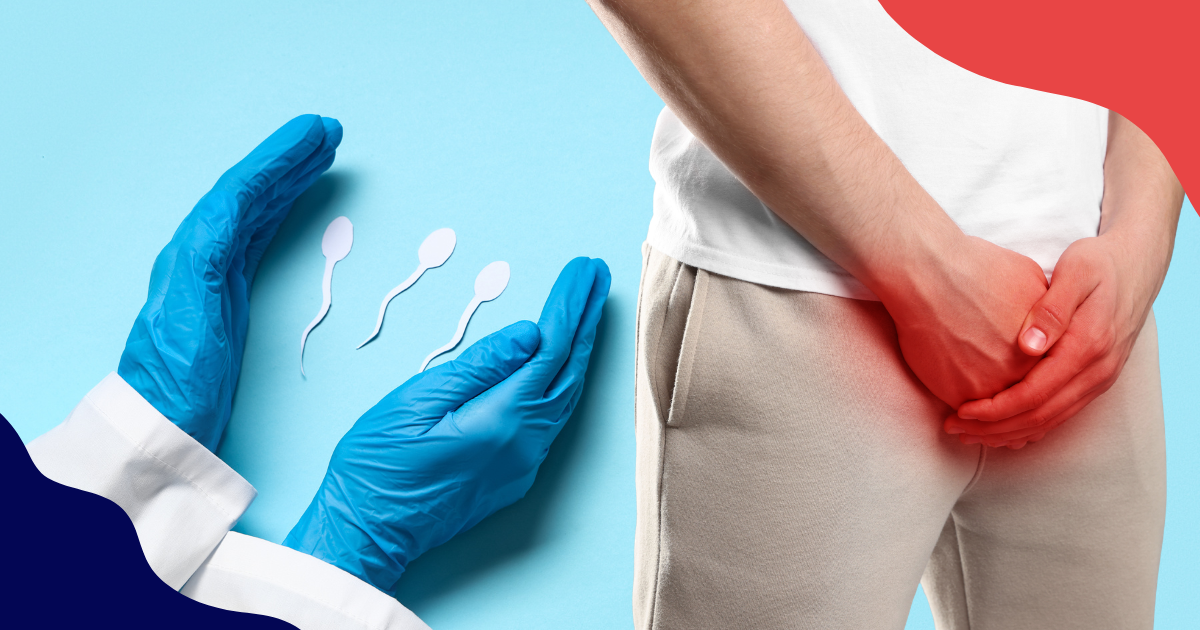Cardiovascular diseases (CVD) are the leading cause of mortality worldwide. In fact, one of the diseases under it, coronary artery disease, accounts for most deaths in 2021. The reason for the lethal rate is not because it’s hard to treat. Rather, cardiovascular diseases tend to be silent until they have progressed enough. Unlike women, however, men get an easy warning sign: erectile dysfunction.
What is Vascular Erectile Dysfunction?
Vascular Erectile Dysfunction is erectile dysfunction caused by any issues in the blood vessels. It’s the most common type of erectile dysfunction, which is why men should check for cardiovascular diseases when they start struggling to get hard. Research has shown that erectile dysfunction can begin 3–5 years before a heart attack. However, men tend to downplay erectile dysfunction and self-medicate with over-the-counter drugs like PDE-5 inhibitors.
Circulation and Erection
Cardiovascular and erectile health are deeply interconnected. Erection occurs due to increased circulation in the corpora cavernosa, the part of the penis containing blood vessels. Simply put, men get hard because the penis swells due to all the extra blood. If you don’t get enough blood flow because there’s an issue in the circulatory system, you either get weak erections or will remain flaccid. Other conditions can cause erectile dysfunction, like diabetes and kidney disease, but they’re usually co-occurring with cardiovascular diseases.
Cardiovascular Diseases and Erectile Dysfunction
There are different kinds of cardiovascular diseases. Most of them can directly cause erectile dysfunction. Here are some common cardiovascular diseases you should watch out for if you have erectile dysfunction:
1.Hypertension
Also called high blood pressure, hypertension happens when your blood pressure is 130/80 mmHg or higher. It can be caused by consuming too much sodium, having excess weight, a sedentary lifestyle, chronic stress, and cigarettes/alcohol. Hypertension is usually asymptomatic until it becomes severe or has lasted long enough. Erectile dysfunction is one of the first signs of hypertension in men. One study found that 58.3% of men with hypertension have erectile dysfunction.
2.Atherosclerosis
Atherosclerosis occurs when cholesterol plaque builds up in the blood vessels or becomes a blockage. Like hypertension, it’s usually asymptomatic until it has worsened enough to start triggering other cardiovascular conditions like a heart attack or stroke. Your risk for hypertension increases if you have atherosclerosis because the heart usually needs to pump more blood due to the reduced blood flow caused by the blockage. This can lead to hardening of blood vessels, which reduces circulation further especially in the penis.
3.CAD
Coronary Artery Disease (CAD), also called Ischaemic Heart Disease, is the top cause of death globally, according to the World Health Organisation (WHO). This condition results from inhibited blood flow due to cholesterol blockage in the heart’s arteries. Arteries carry blood away from the heart, so CAD’s first symptom for men is usually erectile dysfunction. Since the blood vessels in the penis are minuscule, they’re usually the first to suffer consequences from any disruption in blood flow.
4.PAD
Peripheral Artery Disease (PAD) is atherosclerosis that typically occurs in your limbs. Your penis is in your lower extremity, which is why any cholesterol build-up leading to or within the area can trigger erectile dysfunction. Apart from decreased blood flow, blood vessels can harden because of constant vasoconstriction (narrowing of arteries) to increase blood pressure. Over time, this can worsen erectile dysfunction. A study found that there’s a 77.2% prevalence of erectile dysfunction among PAD patients.
5.Atrial Fibrillation
Atrial fibrillation is a type of arrhythmia, a condition in which there is irregularity in one’s heartbeat. This occurs in the atria, or the upper chambers of your heart, hence the name. Due to problems in the electrical system of the heart, it’s unable to pump blood properly. Symptoms include palpitations (erratic heartbeat), angina (chest pain), dizziness, fatigue, and shortness of breath. Research studies found a strong connection between atrial fibrillation and erectile dysfunction.
6.Stroke
Stroke happens when atherosclerosis impedes blood supply to the brain. It can either be due to the cholesterol plaque itself or a blood vessel bursting. Just like a heart attack, erectile dysfunction can be a precursor to stroke. Similarly, your risk for erectile dysfunction increases post-stroke. A study found that up to 74% of men who have experienced stroke developed erectile dysfunction.
When assessing for stroke, remember BE FAST:
- Balance – is the person struggling to stay upright?
- Eyes – is there any disruption of vision?
- Face – is the person unable to smile properly because a side of the face is drooping?
- Arms – is an arm sagging after you raise both?
- Speech – is someone speaking in a slurred manner or struggling to think of the next word?
- Time – HOW LONG HAS IT BEEN?

7.Heart Attack
Like stroke, a heart attack happens because blood can’t reach the heart. It’s also a medical emergency because the heart can’t function without blood to pump. Your organs, tissues, and cells also need oxygen, and it’s only delivered through the blood. Signs of a heart attack include shortness of breath, chest pain, sweating, nausea, and fainting. A person may also struggle to sleep or feel an impending sense of doom before a heart attack. Meanwhile, men may experience erectile dysfunction ahead of a heart attack.
8.Heart Failure
The term heart failure is used when the heart can’t circulate blood throughout your body. It’s usually due to a heart attack, but it can also be triggered by coronary artery disease and severe high blood pressure. Heart failure can lead to cardiac arrest, which is when the heart stops working. Once you’ve reached the point of heart failure, it’s usually for life. You need to be extremely careful with your health moving forward. Research shows that up to 81% of men with heart failure suffer from erectile dysfunction.
Heart-Healthy Tips for Erectile Strength
Cardiovascular diseases fall under non-communicable diseases. Rather than an infection, you acquire most of these conditions due to lifestyle. Cardiovascular diseases and erectile dysfunction also share many risk factors. Applying these lifestyle changes may improve both conditions:
- Balance Salt Intake – excess salt increases your blood pressure and may damage the kidneys over time. Kidney disease can trigger other cardiovascular diseases and erectile dysfunction. However, salt is necessary, so make sure you don’t exceed 2,300 mg per day. You can do this by reducing your use of table salt, consuming more water and potassium, and sweating.
- Consume Spices – apart from being an alternative to salt when seasoning your dishes, certain spices have been shown to decrease blood pressure. Examples of these are garlic, ginger, basil, parsley, thyme, cardamom, and cinnamon. Spices also lower inflammation, reduce cancer risk, and have antimicrobial properties.
- Avoid UPFs – ultra-processed foods (UPFs) contain harmful ingredients like trans fats, excessive sodium, and refined sugar. These increase your risk of developing metabolic syndrome, which includes high blood pressure, high LDL cholesterol, high triglycerides (fats), high blood glucose, and obesity or excess belly fat. Eliminate canned foods, fast food, and fried street food from your diet.
- Get Quality Sleep – good sleep is non-negotiable for your overall health. Missing even a day of sleep can make you vulnerable to infectious diseases. Sleep affects non-communicable diseases like cardiovascular disease due to how it regulates cortisol (the stress hormone) and activates your body’s repair processes. Lacking sleep also increases your risk of developing hypertension.
- Reduce Stress – constant stress is bad for you. The body can only handle a short-term increase in cortisol for emergencies. Cortisol raises your blood pressure, induces chronic inflammation, and reduces your testosterone, which means it can lead to a variety of cardiovascular diseases and erectile difficulties simultaneously. You can try relaxation techniques like meditation, deep breathing, and yoga.
- No Drinking/Smoking – alcohol and cigarettes contain harmful chemicals that activate the entire metabolic syndrome, not just high blood pressure. Tobacco cigarettes contain several carcinogens (cancer-causing substances). Both are risk factors for sexual problems and other chronic diseases that cause erectile dysfunction, like diabetes and liver disease.
- Do Aerobic Exercise – of all the types of workouts, aerobic exercise or cardio offers the most benefits for your cardiovascular system. After all, aerobic exercise trains you to use oxygen efficiently. While resistance training boosts testosterone the most, cardio is the best for blood flow because it involves prolonged exercise. It’s also easier for beginners. Taking a walk counts as cardio.
Conclusion
Getting your erectile dysfunction properly examined can save you from the dangers posed by cardiovascular diseases. Our clinic uses an integrated approach that thoroughly checks all potential causes of your erectile issues. We also combine custom medication with lifestyle modifications for the best results. Book an appointment to protect your cardiovascular health and reclaim your sexual life!




